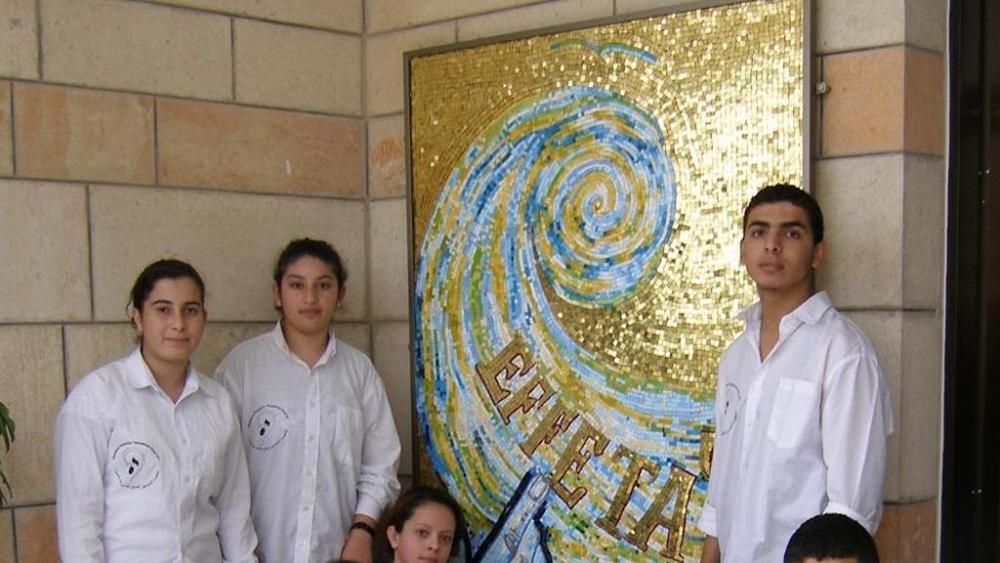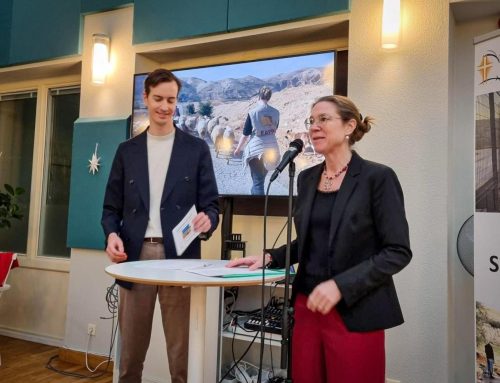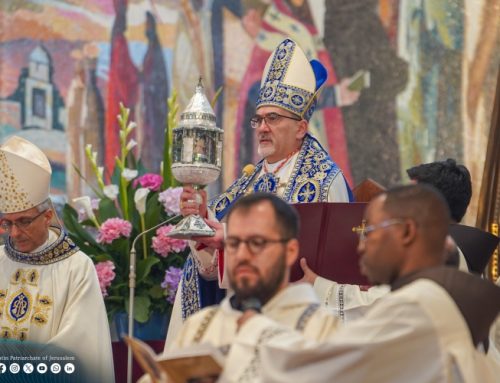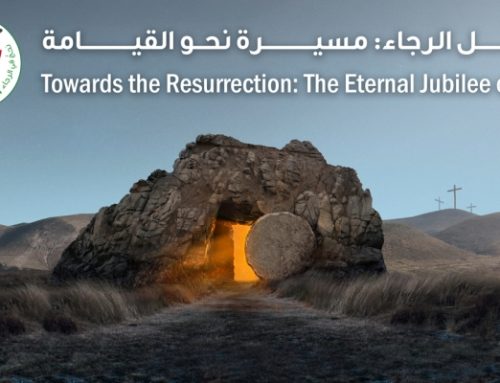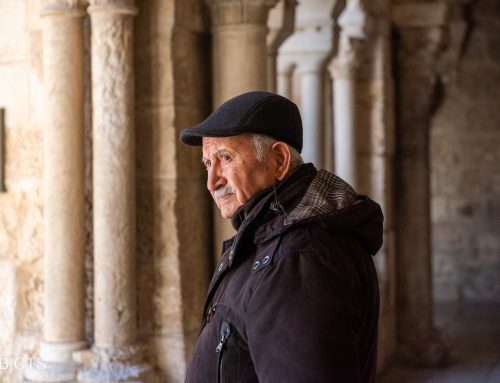Stories of coexistence between Christians and Islam. A Journey to the West Bank, inside the Effetà Paul VI Institute where beautiful complicities spark among humans who strive together to take care of the most vulnerable little ones.
During the historic pilgrimage to the Holy Land, in January 1964, Pope Paul VI – upon learning that many deaf children had no assistance – expressed the wish to set up a school for their rehabilitation in Bethlehem. The assignment was entrusted to the Congregation of the Sisters of Santa Dorotea, Daughters of the Sacred Hearts of Vicenza, which took six years to build the school and to elaborate the educational project. The inauguration took place in 1971: since then, the Paul VI Institute has welcomed hundreds of deaf students – Christians and Muslims – who have been able to recover at least a little bit of their hearing abilities, as well as learn to speak and study.
The everyday life of this school tells of children and teenagers who have discovered tenderness while being cured, caresses able to overcome that wicked loneliness that deafness might have condemned them to. It tells of the beautiful complicity that sparks between human beings, even of different faiths, when they feel the wounds of the smaller and most vulnerable creatures as their own and join forces to take care of them.
A center of excellence
The Effetà Institute is the only center in Palestine to guarantee deaf children a full education cycle, from kindergarten to high school, along with a rehabilitation program, which includes both recovery of hearing residues with prostheses or cochlear implants, as well as teaching the use of voice (preferred to sign language teaching). At present, 165 pupils attend the Institute: they are all Muslims, except one, a Christian who is in first grade. Six Italian and Arabic sisters, a majority of Christian but also Muslims teachers and educators including a pedagogue, a speech therapist, and a social assistant are involved in the kids’ rehabilitation and schooling.
Widespread disability
Unfortunately, the director of the school, Sr. Piera Carpenedo says that deafness, in Palestinian territories, is particularly widespread: “Several studies have found that the high incidence of this handicap is due to genetic factors and marriages contracted within the same family clan. Here it is not uncommon to get married among cousins of second, third, and first degree. To this are added the imposed limitations of movement that discourage those young people willing to leave the area in search of peers from other areas of Palestine.”
Mocking and discrimination
The primary goal of the school, Sr. Piera points out, is the human formation of our pupils: “We strive to offer them a quality education able to make them profit from their own talents in society. We educate them in mutual respect and care, forgiveness and solidarity, to those human values in which we can all recognized. And we help them in many ways to tackle the difficulties imposed by disability and those related to the context in which they live. Unfortunately, often these kids are subject to mockery and discrimination: they suffer a lot. Disability is often regarded as a kind of punishment: there is a lack of sensitivity and appropriate behaviors towards disadvantaged people. The situation, however, is changing.”
Iman, when a student becomes a teacher
Among the teachers of Islamic faith, there is Iman Ahmed Issa, 34, a nubile, religious teacher. She studied at Effetà before enrolling in college and graduating. “This school helped me when I was little, I learned a lot, including how to speak properly: they took great care of me,” she says. “I wanted to come back and work here because I want to help those who are in my same condition and be a role-model. I want to inspire them and give these boys and girls the confidence and optimism needed for life and for their future. I really enjoy working at Effetà, also for the support and comfort I receive. “And thinking of the harmony shared with the other teachers, she adds: “We are all brothers and sisters; religious belonging is not a reason for division.”
The alliance with moms
Children affected by deafness can start attending school as early as eight-months-old, together with their moms in acoustic and vocal stimulation lessons. Since these early meetings, Effetà’s team tries to establish a relationship of friendship with mothers by supporting and encouraging them in the care work. Ad hoc training sessions are also offered for them. “Accompanying is fundamental,” says Sr. Piera: “Many women, especially young ones, do not know how to deal with the disability of their children; they are scared and feel inadequate. They also fear the judgment of the community. We help them, first and foremost, to realize that their child is the same as everyone else. These children only have a hearing impairment that can be tackled and managed if the school and the family accompany them and follow them along the education and rehabilitation path. The professed faith goes in the background: for us and for the moms, what counts are the children.”
And the Alliance among moms
Over the years, strong friendships have grown between the teachers and parents of the pupils. Friendships based on mutual trust, intimacy and affection, Sr. Piera adds: “It is another reason for joy knowing that more experienced moms (whose children have been attending school for years) have begun to follow the younger ones, flanking them with great delicacy. This complicity also arises among families, and particularly among women, enabling them to deal more easily with their children’s difficulties, and also with their own communities.”
The Good example
Iman is delighted and proud to contribute in building a new look on disability: “I consider myself a good example for the students and I strive in every way to make them understand that deafness is not an insurmountable obstacle: by engaging ourselves, we can make our dreams come true. With or without disability, we are all human beings. True disability is not what strikes the body: it is the one living in our minds when we believe we are precluded to many beautiful possibilities.”
Collaboration with the public school
Recently, the Ministry of Education has promoted a major educational project on the use of technology tools and selected fifty schools in Palestine to start implementing it: in Bethlehem, Effetà was the chosen school: “It is a very promising sign for us “ Sister Piera says:” It means that the administration believes in our pupils’ abilities.”
Religions’ roles
In Bethlehem, Iman has excellent relations with Christians and most of her friends are Christian. Reflecting on her job, she says, “What religious teachers – Muslims and Christians – can offer to the world is, first of all, their ability to work together, in harmony, respecting differences. I think religions have the great task of showing the good bonds that can be built with everyone without distinguishing between people. This is a high teaching of both the Islamic and Christian religion.”
Source: Vatican Radio

